Darwin Day 12th February 2017
This year Darwin’s birthday fell on a sunday and thus as it was a family service I preached a Darwin-lite sermon. One thought it a bit controversial
***********
As I preach on creation today I have someone to help me

[most were slow in recognising him, but got it finally]
It is very apt as it is 208th birthday [the organist struck up Happy Birthday] Now Darwin was the greatest British scientist and did so much to help our understanding of creation and its development over the last few billion years and brought out the inter-relatedness of all life through his Theory of Evolution.
We don’t think enough about Creation and whether, in fact, God actually created everything,
how we should aprreciate creation i.e the natural world, and
how we should care for creation.
To consider creation I shall play on three letters
OHW
to be arranged as
WHO
and
HOW
The first is;
WHO
We ask, “Who made Creation?”. The answer is God
In the beginning God created the heavens and the earth. (Gen 1 vs1)
It comes out in many parts of the bible and in the Nicene Creed.
Too often God is pushed to one side and some Christians almost deny God as creator to avoid “conflict with scientists.”
There are some atheistic scientists who argue that science elimates God. In Britain the most well-known is Richard Dawkins, but in America P.Z. Myers and Jerry Coyne are more strident. All are good scientists. However, some put up a strawman that Christians must believe in a 6000 year old earth.As the universe is 13 billion years old and the earth is four and half billion this makes it difficult for some Christians and implies you cannot be a Christian and accept science.
Creation does not tell us about that but tells us the WHO – God. We need to keep that foremost and see that God created everything. We need to go further and ask “HOW?”
HOW
HOW did creation come about?
HOW does it work?
HOW has it changed over time?
The Bible does not answer any of those questions. That should be obvious as Genesis was written in about 1000BC and thus the writers had no knowledge of science. The New Testament writers also knew very little science – and there was little to know. The purpose of the Bible is tell us the WHO not the HOW. For the HOW we need to go to science as that looks at creation with the question how. In fact, science hardly goes back to Biblical times and has only taken off in the last 500 years. All the different sciences tell us something about the HOW.
One of the greatest scientists and one of my favourites is Charles Darwin – 208 years old today. In the 1830s he spent 5 years travelling around the world on the Beagle studying the geology , botany and zoology of wherever he went. From this and what he learnt from others he pulled all the sciences of biology and geology together and produced his theory of evolution. This he published in The Origin of Species in 1859 and in The Descent of Man of 1871 where he showed how we are evolved from other animals. Darwin did not see this as conflicted with the Christian faith and nor should we.
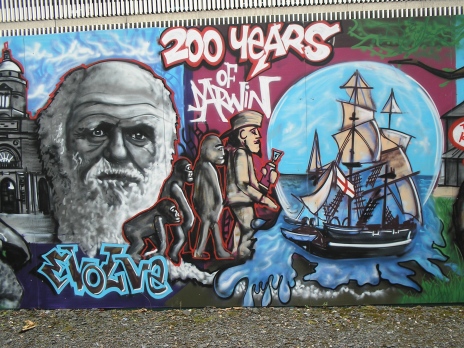
OLYMPUS DIGITAL CAMERA
To put it simply Genesis tells us the WHO of Creation and Darwin the HOW.
HOW TO ENJOY
We need more than that, we need to know HOW to enjoy and appreciate Creation. Genesis says “God saw that it was good” and so should we!
We must have an appreciation and wonder of Creation, but too often we can suffer from a Creation/Nature Deficit Syndrome, as Richard Louv called it, when people live lives almost cut off from the natural world. An example is when some people from Preston go to Beacon Fell and are scared by the wildness and remoteness. [Beacon Fell is a wooded hill of 850 ft above Preston, where there is a Country Park. It is very much nature tamed but very pleasant. Louv argues that many under 50 suffer from NDS.]
So what do we appreciate? Nature large and small. All creatures great and small. We can see the wonder and beauty and dramatic scenery like mountains but also flatlands.The same with a Golden Eagle or lovely little black and red Burnet moth. The awe and wonder came out when taking an American biologist friend around the Lake District. We had driven up the awesome and rugged Wrynose Pass and were descending to the east.
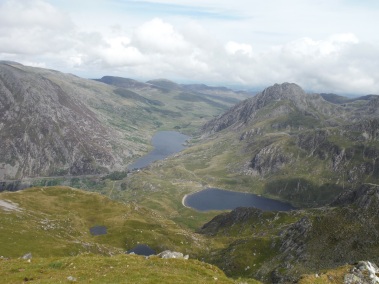
(sorry this is Tryfan in Snowdonia!!)
Suddenly he shouted “stop”. He had spotted some sundew by the side of the road.
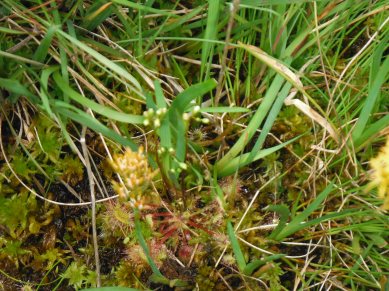
On Friday I went up the Dales mountain Ingleborough which was dramatic under snow and ice. On the small scale ice had formed on the rocks showing the direction of the wind.
This is something we can do each day, whether in our garden or wherever we go. There is always something to see, whether the first crocus, unusual clouds or a new moon. We need to look at the big things and the little things and remember that “God saw everything that he had made and it was very good.” (Gen 1 vs 31)
HOW TO CARE
How many, not only children, kill any creepy crawlies whether in house or garden? And so wasps, millipedes, spiders and lots of other creatures are sent to oblivion.
How many, not only children, leave the tap full on while brushing their teeth? That probably wastes 2 gallons of water and is nearly a 10% increase on our daily home usage of water.
These are just two common thoughtless little actions which are damaging to creation. There are thousands of others as well as more corporate large ones, which are too numerous to list.
A trivial action indicates what we should be like. In 1828 Darwin and a friend were walking across the Britannia bridge to Anglesey when he found a lonely toad in danger of being squashed by a cart. Darwin picked it up, took it to the end and let it go.
In this Darwin gives an example to follow as we look for the thousand little things we CAN do to encourage wildlife (plant flowers and shrubs to encourage insects), limit use of materials (use a bike more, use less water etc) and avoid pollution.
As well as these little things there are larger matters which are beyond the individual; major clean-up of rivers, peat restoration on moorlands as well as national policy.
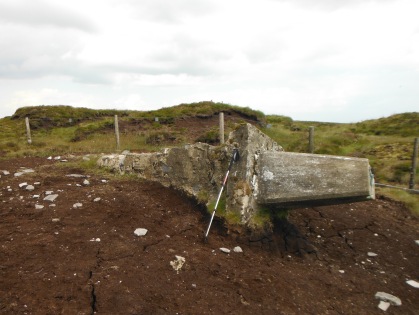
(this shows degradation of our peat moors. 10 ft of peat have been lost in 100 years )
Above all Caring for Creation is both by the individual and more corporately with either groups or the government. All this fulfils Gen 1 vs 26 where have “dominion” over the earth means to care for it and not to wreck it for selfish gain.
On Darwin’s birthday we have considered the WHO of creation, that God is creator but for the HOW we need science in all its forms.
We also considered HOW we should enjoy creation in all its aspects and HOW to care for it.
Too often as Christians we have ignored Creation both in our beliefs and our practice. As the focus of the church in the weeks before lent is on creation, then it is a good time to consider how our belief in Creation works out in our daily lives.
****************************************************************
As I typed this up from my sermon notes I felt it was too brief and rather superficial. I was tempted to put many additional comments in and develop almost every point I made.
There were many children present so it had to be simple and thus it is only an incredibly brief summary.
I do know that some said it was helpful.
I aimed to give basic principles and not go into depth on scientific issues as my simple affirmation of the correctness of evolution was sufficient here.Other blogs deal with that!
My aim was to prod people to enjoy creation if they don’t already – and many have lost the joy of birdsong or a flower.
On care of Creation or environmental issues I had to be simplistic and didn’t mention the usual problems of climate change or fracking. Anyway those two subjects are not quite as simple as some Green christians think 😦 . I am aware some reckon I am beyond the pale on both!!
Two useful secular books are; The moth Snowstorm by Michael McCarthy, and The Nature Principle by Richard Louv.
There is an immense literature on Darwin and Christianity, both secular and Christian. The websites of Christians in Science and the Faraday Institute , Biologos or http://www.asa3.org are good starting points
.
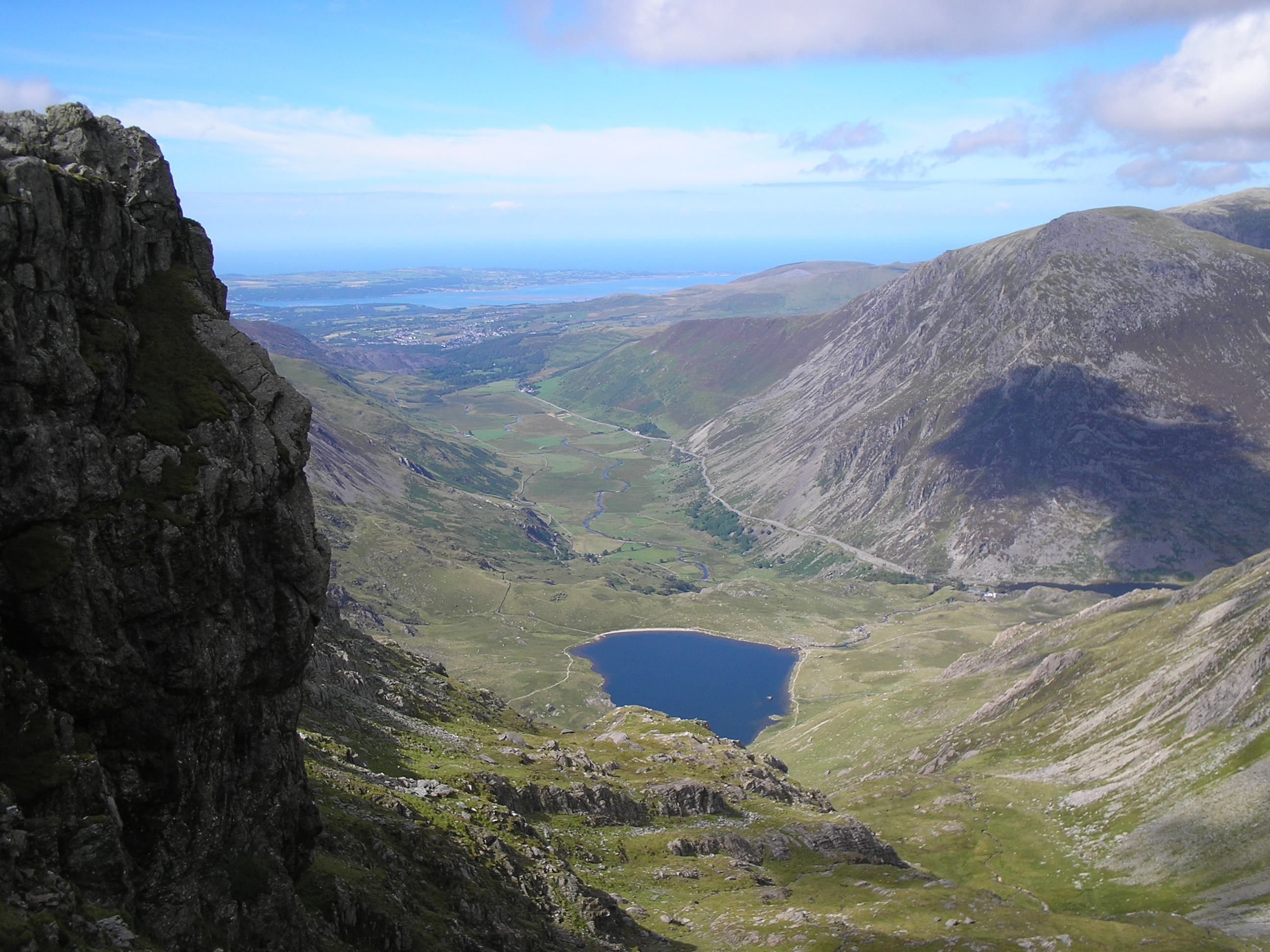
A well-balanced sermon Michael. Wish I could have been there.
LikeLike
Michael Roberts:
You may find the excerpts from the book ” The Evolution of Genesis the common sense Biblical interpretation” These excerpts are free to down load and use. The intent is to take the stories in Genesis out of the realm of mythology and demonstrate that there is reason to believe that they are based on real events. Please let me know your opinion of them whether positive or negative.
Regards, Charles Munroe
LikeLike
We need more like this
LikeLike